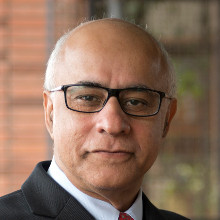[Photograph by Dushan Hanuska under Creative Commons]
As a start-up, how do you stay afloat and motivated when a rival raises hundreds of millions of dollars in fresh funding?
First of all, let me tell you a redeeming story. It is my own story. When Mindtree started in August 1999, we had raised $9.5 million in the first round. The principle was simple: raise money as needed through a business plan that we truly believed that we will execute, to dilute on a fair basis so that the investor would make money, and to raise enough to last us for at least a year so that we are focused on acquiring business and not get distracted with fund raising.
Towards January 2000, the second round funding process started. Again, we were guided by a very similar set of fundamentals. Very fortuitously, a month before 9/11, we completed the second round to raise another $14 million. This is all that we raised before taking the company public in 2007.
I present this data to you for a pertinent reason. In the same time and space that we were born in, high-profile companies like Scient, Viant, Razorfish and Diamond Cluster and countless others were born too. How much money did these companies raise compared to us? Many had raised five to ten times as much. Those were the go-go days of e-commerce. The joke was, if you had a business plan, you were old-fashioned and many cool venture capitalists thought that eye-balls and not revenue are what mattered; they held the key to buoy their own valuation and in that game, it wasn’t the ability to build a business that mattered. In the process, sometimes a so-called critical ability the investor was looking for was, hold your breath, the ability to spend.
Looking back, that piece of history is littered with graveyards of entrepreneurs and gold-diggers alike. Both were worshippers of a false God.
Unfortunately, humanity learns very little from its past. Thus, from the days of betting on tulips to the dotcoms of the 1990s to where we are today, it is “dé·jà vu all over again” as Yogi Berra would say.
To narrate an instance fresh from the oven, someone I know well, joined a start-up a year or so back; it was a company that has a web-based housing and rental platform. The young start-up had many good things going in its favour. Then came another one that was favoured with a startlingly huge amount of funding. My acquaintance narrated to me how her company suffered from an emotional hijack, simply looking at the funding the rival had pulled off. The entire energy of the management now shifted from building the business brick by brick to finding suitors who would pour comparable amounts of money that would make them look as cool in the eyes of their friends and family and probably, batch-mates from their engineering college or management schools. That push became an obsession and led them into making false claims about their company. In the process, they gave into aggressive behaviour at the top, lost sight of governance and started window dressing results. That madness settled with a strange outcome. The core of the company was lost and meanwhile, the entrepreneur at the vulgarly funded start-up committed self-immolation of sorts in the public square. Two companies lost their ways for different reasons. One was seeded with self-destruction but the other was a victim of false comparison.
For every entrepreneur, there are many distractions, of which, jealousy is one.
For every entrepreneur, there are many distractions, of which, jealousy is one
The thing to do is to suffer from that human frailty but for a short time and then, shift the conversation to two things: how is the business plan and the execution story of the rival vastly different such that they were able to raise the money on better terms and, how is it at all relevant to us? A pause and some rational thinking could clear up the fog in the brain. Keeping faith in your own plans, the need to steadfastly execute may be a better thing to do than to suffer from false comparison as you begin your own journey. The Gita probably says it best: swadharme nidhanam shreyah paradharmo bhaya avahah (destruction in the course of performing one’s own duty is better than engaging in another’s duties, for to follow another's path is dangerous). The dharma here is a reference to your own competence and calling.
Keeping faith in your own plans may be a better thing to do than to suffer from false comparison
But let us get back to money matters for now. How much money you raise must be based on how much do you need as per your own strategic plans; plans that you truly believe in. Remember, money is not the dog; the business strategy that you have masterminded is the dog; money is the tail, it is a means to an end and not an end in itself. Sometimes, having less money can be a blessing in disguise and more, a curse in disguise. Excessive money brings arrogance, leads to false steps and erodes a culture if frugality and hard work that help you get to value beyond valuation.
How much money you raise must be based on how much do you need as per your own strategic plans
As a start-up, if you have raised enough money to last you a couple of years, you need to stay focused on delivering as per the business plan that you promised to your own self, and to your investors. Unless of course, you get a real and not flimsy reason to change your strategy such that it truly requires fresh infusion. If the latter be the case, do go back to your current investors, test-bed your pitch on them, get them to believe in it, use their goodwill and hopefully, some continued financial participation and take them along to make a pitch to new investors. Raise the money on reasonable terms so that the second round investor makes money at some point in time.
Beware, the rest is but an illusion; simply an act of Maya.
If you have any questions mail us as askbagchi@foundingfuel.com


